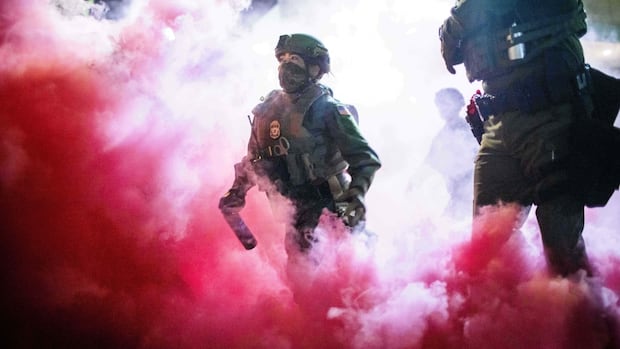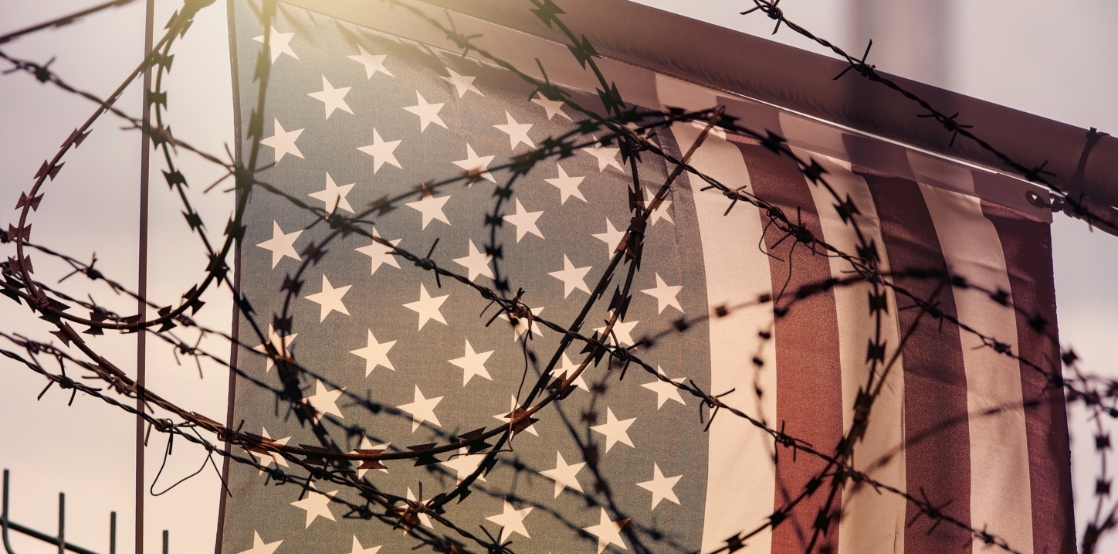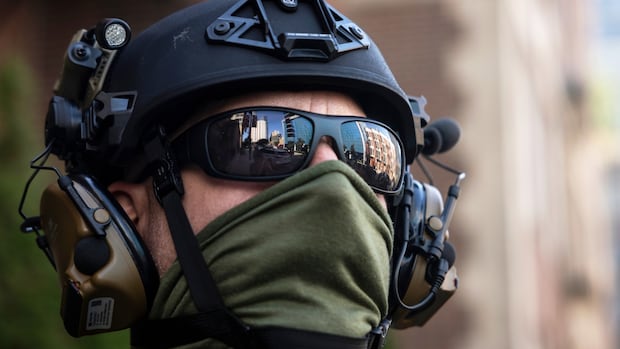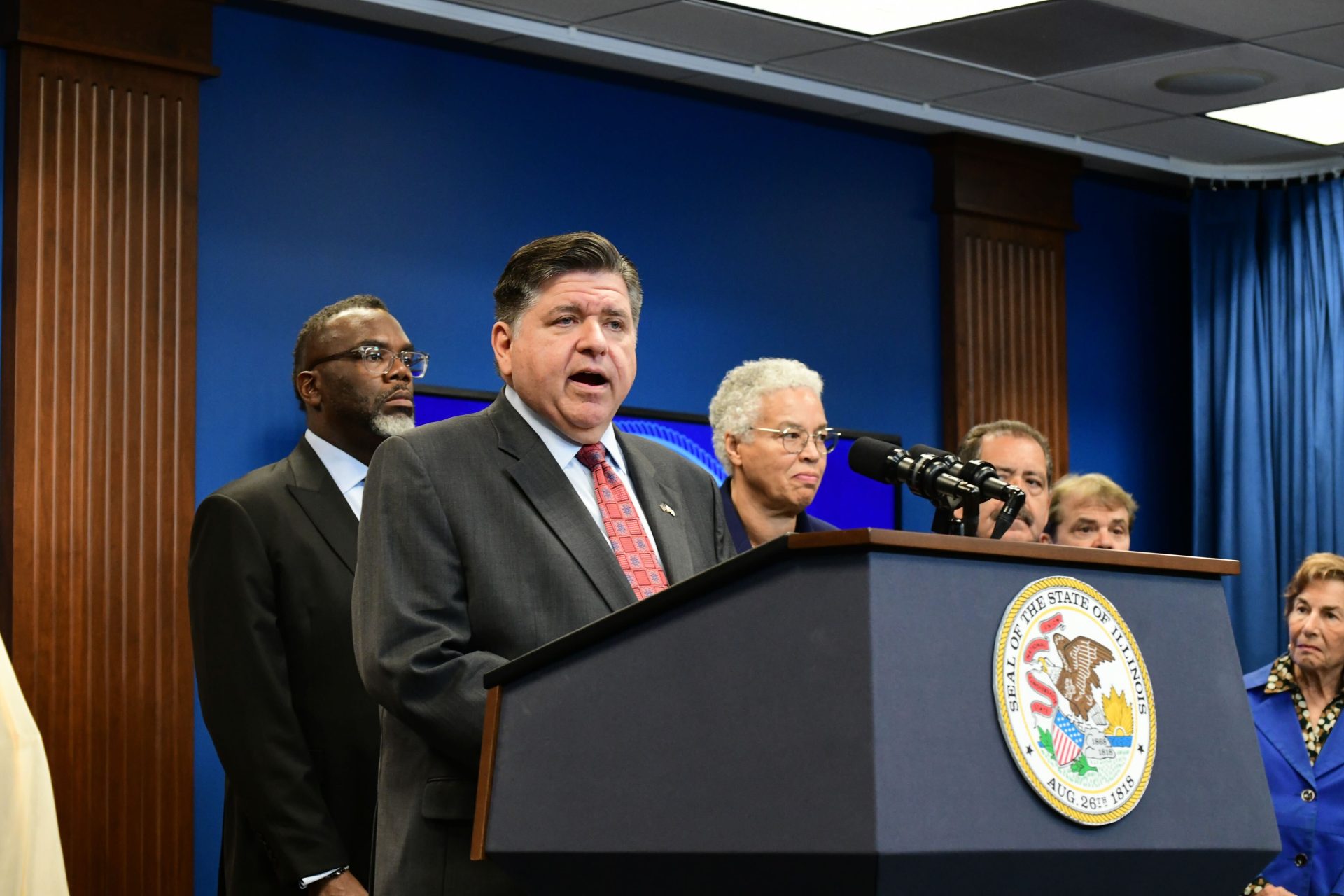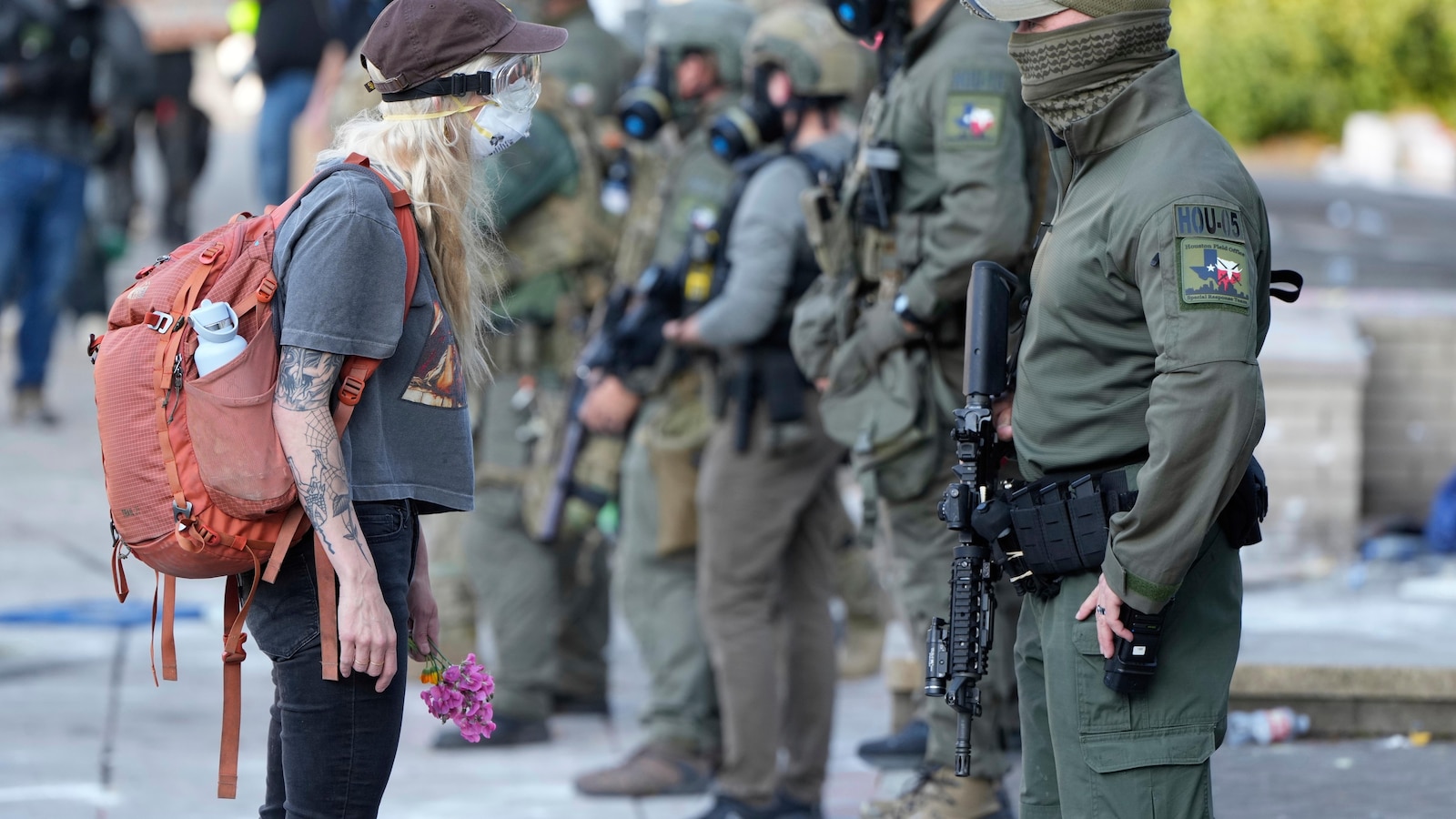Illinois went to court Monday to stop U.S. President Donald Trump from sending National Guard troops to Chicago, escalating a clash between Democratic-led states and the Republican administration during an aggressive immigration enforcement operation in the nation's third-largest city.
The legal challenge came hours after a judge on Sunday blocked the Guard's deployment in Portland, Ore.
The Trump administration has portrayed the cities as war-ravaged and lawless amid the government's crackdown on illegal immigration. Officials in Illinois and Oregon say military intervention isn't needed and that federal involvement is inflaming the situation.
The lawsuit alleges that the deployment is "unlawful and dangerous."
A federal judge has given the Trump administration two days to respond to Illinois's lawsuit, but didn't immediately block the deployment.
Judge April Perry, in Chicago, set a midnight Wednesday deadline for the response from the federal government and scheduled a Thursday hearing in the lawsuit filed Monday.
According to a presidential memo Monday evening, Trump went ahead with calling into service the 300 members of the Illinois National Guard.
'Trump's invasion'
Illinois Gov. J.B. Pritzker, a Democrat, says some 300 of the state's guard troops were to be federalized and deployed to Chicago, along with 400 others from Texas.
"The American people, regardless of where they reside, should not live under the threat of occupation by the United States military, particularly not simply because their city or state leadership has fallen out of a president's favour," the lawsuit says.
Trump indicated Monday he's willing to bypass Pritzker, or other governors, by invoking the Insurrection Act, the 1807 law that allows the president to dispatch active-duty military in states that are unable to put down an insurrection or are defying federal law.
Under that law, the president can activate troops without a governor's approval as long as specific conditions are met, such as if the violence is interfering with the execution of laws there.
A sign is displayed outside an ICE processing facility in the Chicago suburb of Broadview, Ill., Monday. (Nam Y. Huh/The Associated Press)
"We have an Insurrection Act for a reason," Trump told reporters. "If I had to enact it — I'd do that. If people were being killed, and courts were holding us up, or governors or mayors were holding us up."
Later, in an interview with Newsmax, Trump repeated that he would only invoke the act if necessary, but added: "If you take a look at what's been going on in Portland, it's been going on for a long time, and that's insurrection. I mean, that's pure insurrection."
Pritzker said the potential deployment amounted to "Trump's invasion," and he called on Republican Texas Gov. Greg Abbott to block it. Abbott pushed back and said the crackdown was needed to protect federal workers who are in the city as part of the president's increased immigration enforcement.
Chicago Mayor Brandon Johnson said he signed an executive order barring federal immigration agents and others from using city-owned property, such as parking lots, garages and vacant lots, as staging areas for enforcement operations.
Protesters have frequently rallied near an immigration facility outside the city, and federal officials reported the arrests of 13 protesters on Friday near a U.S. Immigration and Customs Enforcement (ICE) building in Broadview.
In Chicago, the sight of armed Border Patrol agents making arrests near famous landmarks has amplified concerns from residents already uneasy after an immigration crackdown that began last month. Agents have targeted immigrant-heavy and largely Latino areas.
Law enforcement officers arrest a protester near an ICE facility in Portland on Sunday. (Ethan Swope/The Associated Press)
ACLU sues Trump
The ACLU of Illinois on Monday sued Trump, ICE, the Department of Homeland Security (DHS) and others, accusing them of unleashing a campaign of violence and intimidation against peaceful protesters and journalists.
The lawsuit alleges that federal agents used "indiscriminate" and "violent force," including tear gas, rubber bullets, pepper balls and flash grenades, interfering with First Amendment rights.
DHS spokesperson Tricia McLaughlin said in response to the lawsuit that "the First Amendment protects speech and peaceful assembly — not rioting."
Earlier, the DHS ack nowledged that agents shot a woman Saturday morning on the southwest side of Chicago. A department statement said it happened after Border Patrol agents in the area "were rammed by vehicles and boxed in by 10 cars."
Oregon judge doubles down
In Portland, U.S. District Judge Karin Immergut on Sunday granted a temporary restraining order sought by Oregon and California to block the deployment of guard troops from those states to the city.
Immergut, whom Trump appointed during his first term, seemed incredulous that the president moved to send National Guard troops to Oregon from neighbouring California and then from Texas on Sunday, just hours after she had ruled against it the first time.
"Aren't defendants simply circumventing my order?" she said. "Why is this appropriate?"
WATCH | What locals say about Portland: Trump says Portland is ‘war ravaged.’ Here’s what locals see Duration 2:00 U.S. President Donald Trump says he’s deploying the National Guard 'to protect war ravaged Portland,' in a social media post on Saturday. CBC’s Julia Wong spoke with some of the city’s residents ahead of the troops’ arrival, who offered a different perspective on what they’re seeing.
The White House says it will appeal the ruling.
"We are appealing that decision," White House press secretary Karoline Leavitt said Monday afternoon. "We expect a hearing on it pretty quickly and we're very confident in the president's legal authority to do this."
Local officials have suggested that many of the president's claims and social media posts about Portland appear to rely on images from 2020. Five years later, the city has reduced crime, and its downtown area has seen fewer homeless encampments and more foot traffic.
There has been a sustained and low-level protest outside the Portland ICE facility, but it's been less disruptive than the downtown clashes of 2020 when demonstrations erupted after George Floyd's killing.
Most violent crime around the U.S. has actually declined in recent years, including in Portland, where homicides from January through June decreased by 51 per cent to 17 this year compared to the same period in 2024, data shows.
Since the start of his second term, Trump has sent or talked about sending troops to 10 cities, including Baltimore; Memphis, Tenn., the District of Columbia; New Orleans; and the California cities of Oakland, San Francisco and Los Angeles.
A federal judge in September said the administration "willfully" broke federal law by deploying guard troops to Los Angeles over protests about immigration raids.
[SRC] https://www.cbc.ca/news/world/national-guard-chicago-portland-1.7652357
 Visit the website
Visit the website
